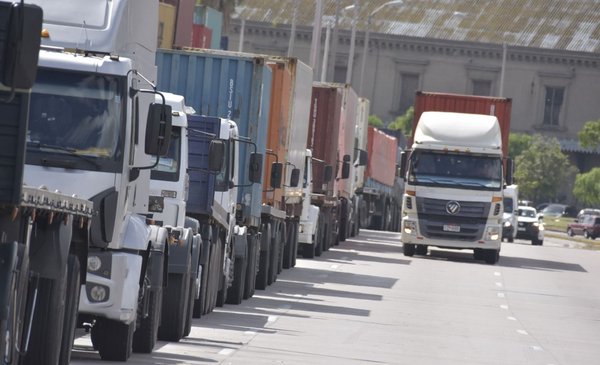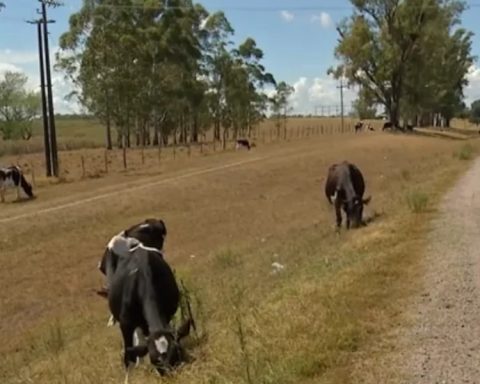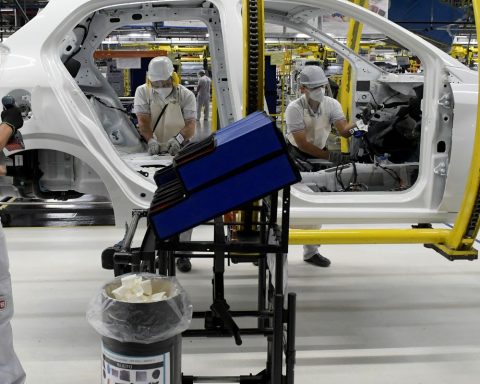A report from Inter-American Development Bank (IDB) on the market for cargo transportation in Uruguay made considerations on the informality in the sector and detected which areas of the productive chain are the most likely to have evasion.
The document explained that informality in cargo transportation is in the initial and intermediate stages and not in the end of the production chain. This occurs, fundamentally, because those involved in the end of the productive process are usually large companies subject to strict controls by the authorities and with high levels of compliance.
The study collected information on the four main agro-industrial chains to determine at which stages of the chain potentially higher levels of informality can occur. Likewise, he stressed that the data collected is intended to qualitatively indicate the stages in which there are greater possibilities of tax evasionbut in no case is there reliable information that makes it possible to affirm that relevant levels of informality were indeed observed in those stages.
In the case of meat sectorGenerally, it is the refrigerator that sends the trucks to remove the cattle from the livestock establishments. According to the report, the potential informality in the chain would eventually be observed in the field of cattle transfers between fields. No possible levels of formality were detected in the transport from the refrigerator to the supply (domestic market) or in the transfer for export.
In the forest sectorthe greatest potential for informality is linked to the transport of wood for firewood for internal consumption and the transport from forests to small sawmills that allocate their production to the domestic market.
When they intervene in the production chain pulp mills, chipping plants and the most important sawmills, transactions are carried out under strict controls by parts of these companies. The same is generally the case with exporting. In the wood intended for consumption (basically for firewood and to a lesser extent for barracks and carpentry), in which collectors and small sawmills participate, those consulted to prepare the report indicated that in these transactions the levels of informality could potentially be more relevant.
In the sector of grainthe same thing happens as in the forest chain. The potential informality occurs mainly when it comes to internal and local consumption. No possible irregularities were detected in the transport of primary production to export or in the transfer of derivatives from processing plants to export.
In the case of milk sector70% of the remittance of milk from producers is acquired by Conaprolewhich carries out all its transport transactions formally.
The remaining 30% is sent to other smaller industrial plants that sell their products basically for internal consumption. Therefore, the document indicated that potential informality is found especially in artisanal production and in its destination to the domestic market.
tax evasion
The study sought to identify the potential amount of tax evasion and social security contributions in the interdepartmental and international land transportation sector based on information from the Continuous Household Survey (ECH) of the INE. Also compared the potential turnover in the sector and the declared sales figures (trips) declared before the General Tax Directorate (DGI).
In addition to calculating the total amount of tax evasion and social security contributions, others were carried out to estimate how this evasion would be distributed among the different company size segments.

With these elements, the estimate of tax evasion in the sector (including VAT, IRAE, personal income tax, dividends and social security contributions) would be slightly above the
$120 million a year. In the breakdown, income tax evasion (IRPF dividends and IRAE) would be around US$ 67 million.
In the case of VAT would be around US$ 49 million and the evasion in contributions to social security in approximately US$ 6 million. In the analysis by companies, more than 70% of the amount evaded would be concentrated in micro-enterprises.
In contributions to social security, the study estimated that informality in the cargo transport sector would affect 18% of workers.
The study clarified that the evasion figures mentioned may probably be high.
He explained that the estimates presented assume that 100% of the undeclared sales were considered as company profits and that the companies recovered 100% of the VAT on purchases and that they deducted 100% of their expenses in the income statements.
In practice, he added, part of the informality is due to the fact that companies cannot fully absorb the costs involved in a formal operation if they sell their services at market prices.
In these cases, he indicated, part of the taxes that are evaded make up profits and another part absorbs costs. The report estimated that the estimated corporate income tax evasion rate (IRAE) would be approximately 58% and the VAT evasion rate would be 35%.

















